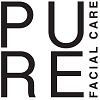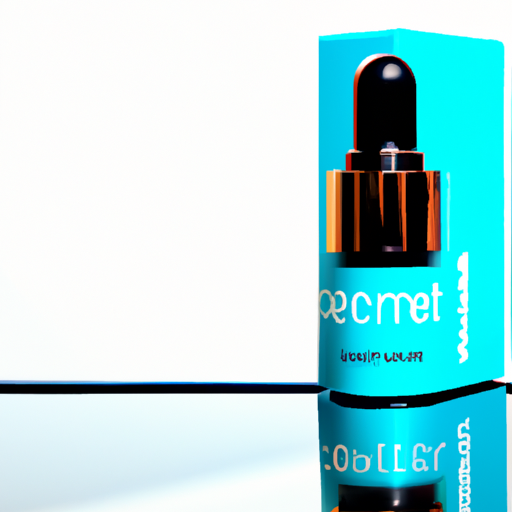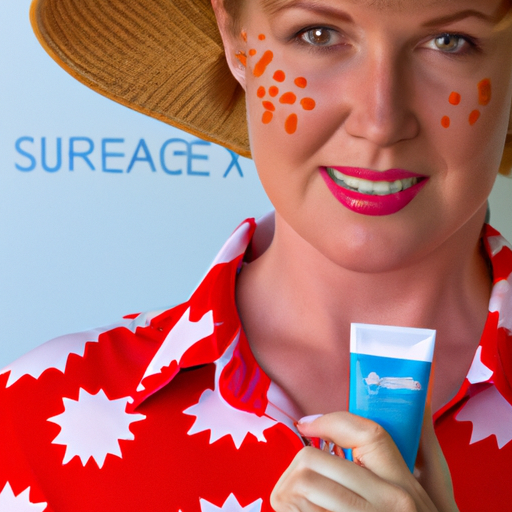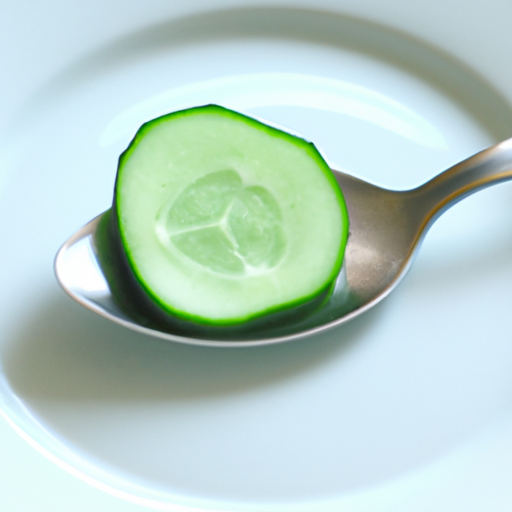If you’ve been overlooking the importance of a skincare routine, it’s time to give it a second thought. Taking care of your skin shouldn’t just be a concern for the ladies out there. After all, your skin deserves some love too! In this article, we will guide you through a daily skincare routine tailored specifically for men. From cleansing and moisturising to protecting and rejuvenating, we’ll have your skin looking and feeling its best in no time. So let’s jump right in and discover the secrets to maintaining healthy and vibrant skin, just for you!
Table of Contents
ToggleCleansing
Cleaning your skin is an essential step in any daily skincare routine. It helps remove dirt, oil, and impurities that can accumulate on the surface of your skin throughout the day. By properly cleansing your face, you can keep your skin looking fresh, clean, and healthy. Here are some important tips to keep in mind when it comes to cleansing:
Choose the Right cleaner
When selecting a cleanser, it’s important to choose one that is suitable for your skin type. Whether you have oily, dry, or combination skin, there is a cleanser out there to meet your needs. Look for products that are free from harsh chemicals and fragrances, as these can potentially irritate your skin.
Wash Your Face Twice a Day
For optimal results, it’s recommended to wash your face twice a day: once in the morning and once at night. This will help remove any buildup of oil and debris from your skin, allowing it to breathe and absorb any products you apply afterward more effectively.
Use Warm Water
When cleansing your face, it’s best to use lukewarm water. Hot water can strip your skin of its natural oils, leading to dryness, while cold water may not effectively remove dirt and oil. Warm water helps to open up your pores, allowing the cleanser to penetrate deeper and cleanse more thoroughly.
Gently Massage the cleaner
When applying the cleanser to your face, be sure to massage it gently using circular motions. This helps to loosen dirt and unclog pores, leaving your skin feeling refreshed. Avoid applying too much pressure, as this can potentially irritate your skin.
Rinse Thoroughly
After massaging the cleanser onto your skin, rinse it off thoroughly with warm water. Make sure to remove all traces of the cleanser, as any residue left behind can lead to clogged pores and potential breakouts. Pat your face dry with a clean towel, being careful not to rub or tug at your skin.
Exfoliating
Exfoliating is a crucial step in any skincare routine, as it helps to remove dead skin cells and reveal a brighter, smoother complexion. By incorporating exfoliation into your daily routine, you can improve the overall texture and appearance of your skin. Here’s what you need to know about exfoliating:
Benefits of Exfoliating
Exfoliating offers several benefits for your skin. It helps to unclog pores, prevent breakouts, and reduce the appearance of acne scars. In addition, regular exfoliation can stimulate cell turnover, which promotes a youthful and glowing complexion. By removing dead skin cells, exfoliating allows other skincare products to penetrate deeper and work more effectively.
Select an Exfoliator Suitable for Your Skin Type
Just like cleansers, it’s important to choose an exfoliator that matches your skin type. If you have sensitive skin, opt for a gentle exfoliator with finer particles. On the other hand, if you have oily or acne-prone skin, look for exfoliators that contain salicylic acid or glycolic acid, as these ingredients can help control oil production and fight acne.
Follow a Regular Exfoliation Schedule
To achieve the best results, it’s important to establish a regular exfoliation schedule. However, be cautious not to over-exfoliate, as this can strip your skin of its natural moisture and cause irritation. Depending on your skin’s needs, exfoliating once or twice a week is generally sufficient.
Be Gentle When Exfoliating
When exfoliating, remember to be gentle with your skin. Avoid scrubbing too harshly or using excessive pressure, as this can damage the skin’s barrier and cause redness or inflammation. Instead, use gentle circular motions and let the exfoliator do its job.
Moisturise After Exfoliating
After exfoliating, it’s essential to replenish your skin’s moisture. Applying a hydrating moisturiser will help restore and lock in moisture, leaving your skin feeling soft, supple, and rejuvenated. Look for moisturisers that contain nourishing ingredients such as hyaluronic acid, ceramides, or natural oils.
Shaving
For those who shave regularly, it’s important to make sure the process is not only effective but also gentle on your skin. By following a proper shaving routine, you can achieve a clean, smooth shave while minimising irritation and razor burn. Here are some tips for a smooth shaving experience:
Prepare Your Skin
Before you begin shaving, it’s crucial to prepare your skin properly. Start by cleansing your face with a gentle cleanser to remove any dirt, oil, or impurities. Then, wet your face with warm water or take a warm shower to soften your facial hair. This will make your hair easier to shave and reduce the chances of irritation.
Use a High-Quality Shaving Cream or Gel
Investing in a high-quality shaving cream or gel is essential for a smooth and comfortable shave. These products help lubricate your skin, allowing the razor to glide effortlessly across your face while reducing friction. Look for products that are suitable for your skin type and free from irritants such as alcohol or fragrances.
Choose the Right Razor
Selecting the right razor is vital for a close and irritation-free shave. Whether you prefer disposable razors or safety razors, it’s important to choose one with sharp blades that won’t tug or pull at your hair. Additionally, make sure to replace your blades regularly to avoid using dull razors, which can cause irritation.
Shave in the Direction of Hair Growth
To minimise irritation and the risk of ingrown hairs, it’s best to shave in the direction of your hair growth. Shaving against the grain may result in a closer shave, but it also increases the likelihood of razor burn. Take your time and use gentle, steady strokes to achieve a smooth and comfortable shave.
Apply Aftershave or Moisturiser
After you’ve finished shaving, it’s important to soothe and hydrate your skin. Applying an aftershave balm or moisturiser can help calm any irritation, reduce redness, and restore moisture to your skin. Look for products that are specifically formulated for post-shave care and contain ingredients like aloe vera or chamomile.
Moisturizing
Moisturising is a vital step in any skincare routine, regardless of your skin type. It helps to hydrate and nourish your skin, creating a protective barrier against environmental aggressors. By incorporating moisturiser into your daily regimen, you can keep your skin healthy and supple. Here’s what you need to know about moisturising:
Importance of Moisturising
Moisturising is essential for maintaining the health and vitality of your skin. It helps to restore and lock in moisture, preventing dryness, flakiness, and premature ageing. In addition, moisturising can improve your skin’s texture, reduce the appearance of fine lines and wrinkles, and promote a radiant complexion.
Select the Right Moisturiser for Your Skin Type
To reap the most benefits from your moisturiser, it’s crucial to choose one that suits your skin type. If you have oily skin, opt for lightweight, oil-free moisturisers that won’t clog your pores. Dry skin, on the other hand, will benefit from richer, more emollient formulas. Combination skin may require a moisturiser that strikes a balance between hydration and oil control.
Apply moisturiser Daily
For optimal results, incorporate moisturiser into your daily skincare routine. Apply it immediately after cleansing or exfoliating to lock in moisture and enhance absorption. Gently massage the moisturiser into your skin using upward, circular motions to stimulate blood flow and ensure even distribution.
Focus on Problem Areas
If you have specific problem areas, such as dry patches or areas prone to acne, give them some extra attention. Apply a more generous amount of moisturiser to these areas to alleviate dryness or soothe any irritation. By focusing on these problem areas, you can maintain a balanced and nourished complexion.
Use SPF-Based moisturisers for the day.
During the daytime, it’s crucial to protect your skin from harmful UV rays. Opt for moisturisers that contain SPF, preferably with broad-spectrum coverage, to shield your skin from both UVA and UVB rays. Sun damage can lead to premature ageing, dark spots, and even skin cancer, so don’t skip this essential step in your skincare routine.
Eye Care
Taking care of the delicate skin around your eyes is crucial for maintaining a youthful and refreshed appearance. The skin around your eyes is thinner and more sensitive than the rest of your face, making it prone to dryness, fine lines, and dark circles. By introducing an eye care regimen, you can keep this area hydrated and diminish the signs of ageing. Here’s what you need to know about eye care:
Why Eye Care is Important
The skin around your eyes is significantly thinner and more delicate than the rest of your face. As a result, it tends to show signs of ageing, fatigue, and stress more prominently. By incorporating specific eye care products into your routine, you can address concerns such as fine lines, wrinkles, puffiness, and dark circles.
Choose an Eye Cream or Serum
When it comes to eye care, it’s essential to choose the right product. Look for eye creams or serums that are specifically formulated for the delicate skin around the eyes. These products are often lighter in texture and contain ingredients that target specific concerns, such as hyaluronic acid for hydration or retinol for fine lines.
Apply Eye Cream Twice a Day
To achieve the best results, it’s recommended to apply your chosen eye cream or serum twice a day—once in the morning and once at night. Use your ring finger to gently tap or pat the product around your orbital bone, starting from the inner corner to the outer corner of your eye. Avoid pulling or dragging the skin.
Use Light Pressure for Application
When applying eye cream or serum, be sure to use light pressure. The skin around your eyes is delicate and prone to damage, so it’s important to be gentle. Using too much pressure or rubbing vigorously can contribute to the formation of fine lines and wrinkles.
Avoid Rubbing Your Eyes
Rubbing your eyes can lead to irritation, redness, and the breakdown of collagen, which can accelerate the ageing process. If you feel the need to rub or scratch, try to resist the urge and instead use a clean tissue or a warm compress to alleviate any discomfort.
Sun Protection
Protecting your skin from the harmful effects of the sun is crucial for maintaining a healthy and youthful complexion. Overexposure to UV rays can lead to wrinkles, sunspots, and even skin cancer. By incorporating sun protection into your daily routine, you can shield your skin from these damaging effects. Here’s what you need to know about sun protection:
The Need for Sun Protection
UV radiation from the sun is the primary cause of premature ageing and skin damage. Protecting your skin from harmful UVA and UVB rays is essential in preventing sunburn, dark spots, wrinkles, and reducing the risk of developing skin cancer.
Use Broad-Spectrum Sunscreen
When choosing a sunscreen, opt for broad-spectrum formulations that protect against both UVA and UVB rays. UVA rays penetrate deep into the skin and contribute to premature ageing, while UVB rays primarily cause sunburn. Broad-spectrum sunscreens provide comprehensive protection.
Apply Sunscreen Daily
To ensure optimal protection, it’s crucial to apply sunscreen daily, even on cloudy or cold days. Apply a generous amount to all exposed areas of your body, including the face, neck, arms, and legs. Don’t forget commonly overlooked areas such as the ears, scalp, and the back of your neck.
Reapply Sunscreen Every Few Hours
Sunscreen should be reapplied every two hours, especially if you are outdoors for an extended period or engaged in activities that may cause sweating or water exposure. Even water-resistant or waterproof sunscreens should be reapplied regularly.
Protect Your Face with Hats or Sunglasses
In addition to using sunscreen, protect your face from the sun by wearing a wide-brimmed hat or sunglasses with UV protection. This will provide extra shielding from direct sunlight, especially during peak hours when UV radiation is the strongest.
Lip Care
Lip care is often overlooked, but it’s an essential part of a comprehensive skincare routine. Your lips are vulnerable to dryness, chapping, and sun damage due to their thin and delicate nature. By implementing a lip care regimen, you can keep your lips soft, hydrated, and protected. Here’s what you need to know about lip care:
Protecting Your Lips
Your lips lack the protective layer of skin that covers the rest of your body, making them more susceptible to dryness and damage. Protecting your lips is crucial, especially during harsh weather conditions or excessive sun exposure.
Use Lip Balm with SPF
When it comes to lip care, it’s essential to use a lip balm that contains SPF. Look for products with a broad-spectrum SPF of at least 30 to protect your lips from the harmful effects of UV radiation. Regularly applying lip balm with SPF can help prevent sunburn, chapping, and the development of cold sores.
Apply Lip Balm Regularly
To maintain soft and hydrated lips, make it a habit to apply lip balm regularly throughout the day. Carry a lip balm with you wherever you go and reapply it whenever your lips feel dry or exposed to harsh conditions. Hydrated lips are less prone to cracking, peeling, and discomfort.
Avoid Licking Your Lips
Licking your lips may provide temporary relief, but it actually exacerbates dryness and leads to further chapping. The enzymes in saliva break down your lips’ natural moisture barrier, causing them to become dry and even more susceptible to dryness and irritation. Replace the habit of licking with regular application of lip balm.
Stay Hydrated
Proper hydration is crucial for overall skin health, including the delicate skin on your lips. Drink plenty of water throughout the day to keep your body and lips hydrated from within. When your body is well-hydrated, it reflects in the appearance and condition of your skin, including your lips.
Healthy Lifestyle Choices
In addition to a daily skincare routine, adopting healthy lifestyle choices can significantly impact the condition and appearance of your skin. By making a few simple changes to your daily habits, you can promote overall skin health and achieve a vibrant complexion. Here are some tips for making healthy lifestyle choices:
Drink Plenty of Water
Staying hydrated is vital for maintaining healthy skin. Water helps to flush out toxins, deliver essential nutrients to the skin, and maintain proper moisture levels. Aim to drink at least eight glasses of water per day, and increase your intake if you engage in activities that cause excessive sweating.
Eat a Balanced Diet
What you put into your body directly affects the health of your skin. Consuming a balanced diet rich in fruits, vegetables, whole grains, lean proteins, and healthy fats provides your skin with the necessary nutrients and antioxidants for optimal function. Incorporate foods that are high in vitamins A, C, and E, as they are particularly beneficial for the skin.
Get Sufficient Sleep
Getting enough quality sleep is crucial for overall skin health. During sleep, your body repairs and regenerates cells, including those in your skin. Lack of sleep can lead to increased signs of ageing, dullness, and an overall decrease in skin health. Aim for 7-9 hours of uninterrupted sleep each night and establish a consistent sleep routine.
Exercise Regularly
Regular exercise not only benefits your physical health but also promotes glowing skin. Exercise increases blood flow, delivering oxygen and nutrients to the skin cells. This leads to a healthier complexion and a natural, youthful radiance. Aim for at least 30 minutes of moderate exercise most days of the week.
Manage Stress
Chronic stress can have a detrimental impact on your skin’s health, leading to increased oil production, breakouts, and a dull complexion. It’s important to find healthy coping mechanisms to manage stress effectively. Engage in activities that relax and calm you, such as meditation, yoga, or spending time with loved ones.
Avoid Harmful Habits
In addition to adopting healthy habits, it’s equally important to avoid harmful ones that can negatively impact your skin. Certain lifestyle choices can contribute to skin damage, premature ageing, and various skin conditions. By eliminating or reducing these habits, you can improve the overall health and appearance of your skin. Here are some habits to be mindful of:
Quit Smoking
Smoking is not only detrimental to your overall health but also has a significant impact on your skin. Smoking causes blood vessels to narrow, reduces blood flow to the skin, and depletes essential nutrients and oxygen. This can result in premature ageing, dullness, and the development of wrinkles. Quitting smoking is one of the best things you can do for your skin.
Limit Alcohol Consumption
Excessive alcohol consumption can dehydrate your skin, leading to dryness and a dull complexion. Alcohol can also exacerbate existing skin conditions, such as rosacea or acne. To maintain healthy skin, limit your alcohol intake and consume alcohol in moderation.
Avoid Excessive Caffeine
While moderate caffeine consumption is generally fine, excessive intake can dehydrate your skin and contribute to inflammation. Caffeine can also disrupt sleep patterns, leading to poor sleep quality, which can negatively affect your skin’s health. Be mindful of your caffeine consumption and opt for hydrating alternatives such as herbal tea or infused water.
Reduce Stressful Environments
Chronic exposure to stress can result in increased cortisol levels, leading to inflammation and a variety of skin conditions. If possible, reduce your exposure to stressful environments or situations that trigger anxiety or stress. Surround yourself with positive influences and create a peaceful space where you can relax and unwind.
Protect Your Skin from Environmental Pollutants
Exposure to environmental pollutants, such as air pollution and harsh chemicals, can contribute to skin damage and premature ageing. Whenever possible, protect your skin by wearing a broad-brimmed hat, using a scarf or face mask, and avoiding heavily polluted areas. Cleaning your skin thoroughly at the end of the day is also crucial to removing any accumulated pollutants.
Consult with a Dermatologist
While implementing a daily skincare routine is a great step towards healthier skin, consulting with a dermatologist can provide valuable insights specific to your individual needs. A dermatologist can assess your skin type, identify potential issues, and recommend targeted treatments or products. Here’s why you should consider consulting with a dermatologist:
Seek Professional Advice
Dermatologists are highly trained medical professionals who specialise in skin health. By seeking their advice, you can gain valuable insights into your skin’s specific needs and concerns. They can offer personalised recommendations tailored to your skin type, helping you achieve optimal results.
Identify and Treat Skin Issues
If you’re experiencing specific skin issues such as acne, rosacea, or eczema, a dermatologist can help identify the underlying cause and develop a treatment plan. They can prescribe medications, perform procedures, or recommend specialised skincare products to address your concerns effectively.
Get Recommendations for Your Skin Type
With the vast array of skincare products available on the market, it can be overwhelming to choose the right ones for your skin type. A dermatologist can provide recommendations based on your skin’s unique characteristics. By following their advice, you can avoid potential allergic reactions or ineffective products.
Learn about Advanced Treatments
Dermatologists have access to advanced skincare treatments and procedures that may be beneficial for your specific skin concerns. These may include chemical peels, laser therapies, or injectables. Consulting with a dermatologist allows you to explore these options and make informed decisions about your skincare journey.
Establish a Long-Term Skincare Plan
A dermatologist can help you develop a long-term skincare plan that meets your goals and addresses your concerns. They can provide guidance on which products to use, when to use them, and how to adjust your routine as your skin changes over time. With their expertise, you can achieve and maintain healthy, radiant skin for years to come.
In conclusion, a daily skincare routine is essential for maintaining healthy and vibrant skin. By following the tips and guidelines outlined in this article, you can develop a comprehensive skincare regimen that addresses your individual needs. Remember to cleanse, exfoliate, moisturise, protect, and consult with a dermatologist to achieve the best possible results. Your skin will thank you for the care and attention you give it, and you’ll enjoy the lasting benefits of a radiant and confident appearance.






